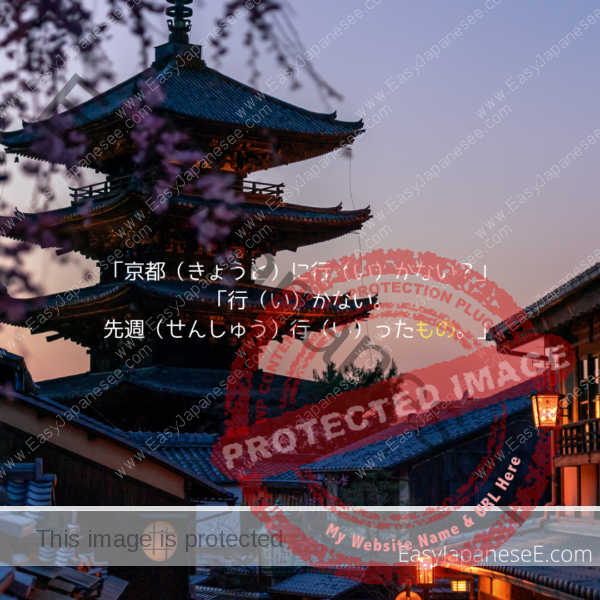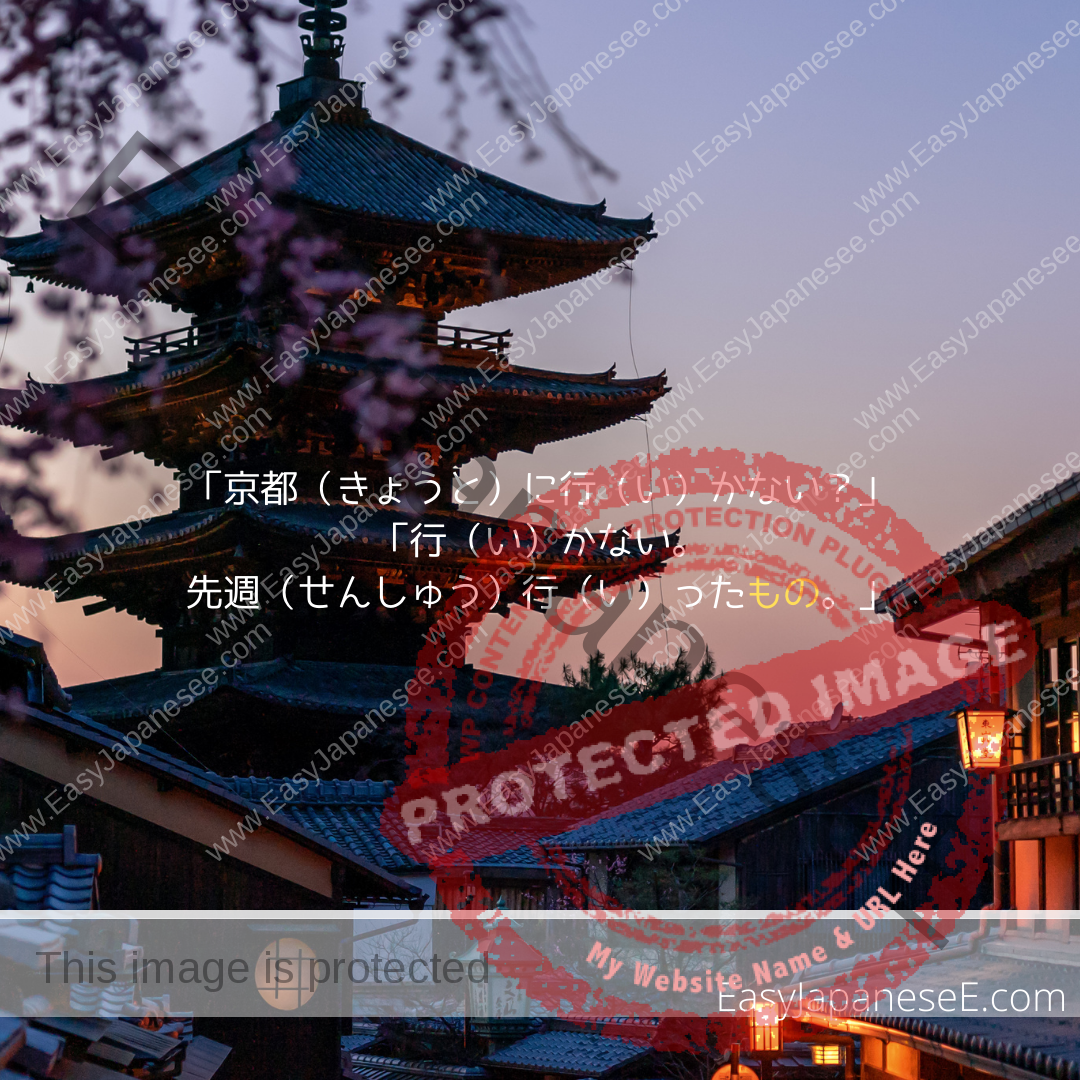
Today’s Grammar Point: ~もの/~もん
Today’s grammar point is the sentence ending particle もの. It is used at the end of a sentence to describe a cause or reason. However, unlike ~から or ~ので, ~もの/~もん implies “because ~, I couldn’t help it,” so ~もの/~もん is often used to give an excuse.
~もの/~もん is usually used in a casual scene with a plain form ending but if it is used after a polite form ending, it certainly gives a feminine feel. In a very casual scene, もの can be replaced by もん.
It is often used with ~んだ/~んです.
Connection
- [plain form sentence] もの/もん。
- [plain form sentence] んだ + もの/もん。
- [polite form sentence] もの/もん。 (sounds very feminine)
- [plain form sentence] んです + もの/もん。 (sounds very feminine)
Examples
「まだ起きてるの?」「うん、まだ宿題があるもん。」
“Are you still up?” “Yeah, I still have some homework.”「今度京都に行かない?」「行かない。先週行ったもの。」
“Why don’t we go to Kyoto next?” “I won’t go. I went there last week.”今日の試験は難しかった。勉強しなかったもん。
Today’s exam was difficult. That’s because I didn’t study.「トトロの映画見に行かない?」「いかない。先週見たんだもん。」
“Why don’t we go and see Totoro’s movie?” “No I won’t go. I saw it last week.”きょうのケーキ見栄えが悪いなあ。でも、いいか。うちで食べるんだもの。
Today’s cake doesn’t look good but that’s OK because I’m eating it at home.このゲームがすきなの。おもしろいもの。
I like this game because it’s fun.この野菜は体にいいのよ。新鮮だもの。
This vegetable is good for you because it’s fresh.「どうして新年会に来なかったの?」「知らなかったんだもん。」
“Why didn’t you come to the New Year party?” “Because I didn’t know about it.”「え、まだ食べるの?」「うん、おいしいんだもん。」
“What? Are you eating more?” “Yeah, it’s delicious.”弟は女の子に興味がないの。超真面目なんだもの。
My brother isn’t interested in girls. He’s super serious.ケーキを買うお金がないんだ。給料日前だもの。
I don’t have the money to buy a cake because it’s just before the payday.ケーキを買うお金がなかったんだ。給料日前だったんだもの。
I didn’t have the money to buy the cake Because it was just before the payday.
If you liked this article, please share it with your friends using the social media buttons below. Also, your clicks on ads on this page help covering the cost of running this website. Your support will be much appreciated.

